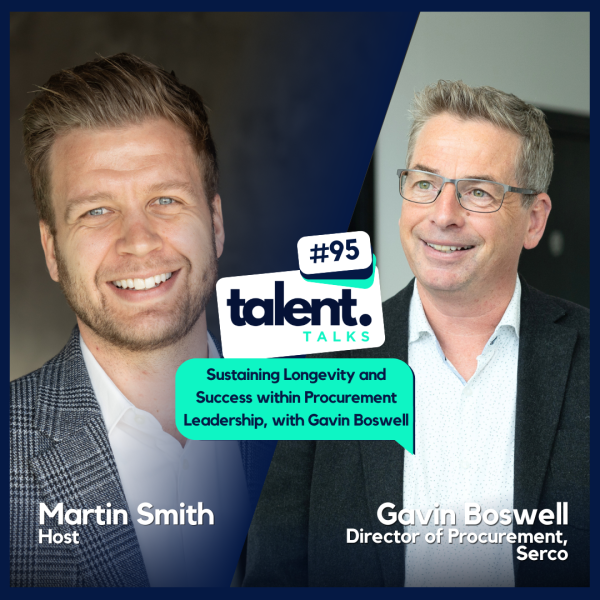In the world of procurement, clearly defining roles and responsibilities is more than a necessity, it’s the cornerstone of a well-functioning and agile procurement team. In sectors such as FMCG and retail, where supply chains are complex and competition is fierce, understanding who is responsible for what within the procurement function can streamline operations, improve supplier relationships, and ultimately impact the bottom line. This blog post dives into the importance of defining procurement roles and responsibilities, explores the key roles in procurement, and offers tips on how to structure responsibilities to foster accountability and performance.
Why Defining Procurement Roles and Responsibilities Matters
In procurement, as in any business area, clarity in roles and responsibilities translates to greater efficiency and effectiveness. Here’s why:
- Improved Accountability: When each team member knows what’s expected, accountability is more easily tracked, and tasks are less likely to slip through the cracks.
- Enhanced Collaboration: Defined roles help reduce overlap in responsibilities, making it easier for team members to collaborate and work towards common goals.
- Risk Mitigation: In sectors with strict compliance and regulatory requirements, well-defined roles allow for more robust checks and balances, reducing the risk of non-compliance and operational missteps.
- Optimised Supplier Relationships: Procurement roles that focus on strategic sourcing and supplier management lead to better alignment with suppliers, helping to build long-term, mutually beneficial partnerships.
Key Roles in Procurement
While the exact roles may vary from one organisation to another, certain procurement roles are commonly seen across industries. Let’s look at the core roles and their responsibilities.
Chief Procurement Officer (CPO)
- Role Overview: As the head of the procurement department, the CPO is responsible for setting the overall procurement strategy, aligning it with corporate goals, and overseeing procurement processes across the organisation.
- Key Responsibilities:
- Defining and implementing procurement policies and strategies
- Managing the procurement team and setting departmental KPIs
- Building and maintaining strategic supplier relationships
- Ensuring compliance with regulatory requirements
Procurement Manager
- Role Overview: The Procurement Manager oversees day-to-day procurement activities and coordinates between the team, suppliers, and other departments.
- Key Responsibilities:
- Managing and mentoring procurement specialists and buyers
- Developing supplier agreements and negotiating contracts
- Monitoring performance metrics and procurement processes for continuous improvement
- Collaborating with the finance department on budgeting and cost-saving initiatives
Category Manager
- Role Overview: Category Managers specialise in sourcing for a particular category or set of products, ensuring the procurement strategy aligns with the category’s specific needs.
- Key Responsibilities:
- Analysing market trends to create and implement category strategies
- Evaluating supplier performance within their categories
- Managing contracts and price negotiations
- Working with stakeholders to optimise inventory and reduce costs
Procurement Specialist/Buyer
- Role Overview: Procurement Specialists, often referred to as buyers, are responsible for sourcing materials, products, or services based on the company’s needs and policies.
- Key Responsibilities:
- Conducting market research to identify suppliers
- Evaluating supplier proposals and selecting the best options
- Negotiating purchase agreements and contracts
- Coordinating orders, shipments, and tracking procurement KPIs
Supplier Relationship Manager
- Role Overview: This role focuses on building and nurturing supplier relationships to ensure quality, compliance, and timely delivery of products or services.
- Key Responsibilities:
- Developing and maintaining strategic supplier relationships
- Conducting performance evaluations and supplier audits
- Addressing and resolving supplier-related issues
- Collaborating with suppliers to improve process efficiencies
Procurement Analyst
- Role Overview: The Procurement Analyst analyses data to provide insights that inform procurement strategies and improve decision-making.
- Key Responsibilities:
- Collecting and analysing procurement data and trends
- Preparing reports on spending, supplier performance, and other KPIs
- Providing insights for cost-saving initiatives
- Assisting in the development of procurement forecasts and budgets
Structuring Responsibilities: Best Practices
- Use a RACI Matrix: This tool categorises responsibilities by indicating who is Responsible, Accountable, Consulted, and Informed for each task, ensuring there is no ambiguity in ownership.
- Encourage Cross-functional Collaboration: Procurement rarely works in isolation; ensure roles are designed to foster collaboration with other departments like finance, operations, and logistics.
- Regularly Review Roles and Responsibilities: In fast-evolving sectors like FMCG and retail, roles may need to adapt frequently. Regular reviews ensure that roles remain aligned with the business’s current needs.
- Set Clear Performance Metrics: For each role, establish KPIs that reflect both individual and departmental goals, promoting accountability and transparency across the team.
In the competitive landscape of FMCG and retail, defining procurement roles and responsibilities is a critical first step in establishing a well-organised and high-performing procurement function. By clearly outlining who does what, businesses can drive efficiency, ensure compliance, and foster strong supplier partnerships. This not only helps meet organisational goals but also provides the foundation for an adaptable, resilient procurement team equipped to face future challenges.
Defining roles is an ongoing process, and as procurement continues to evolve, so too must the clarity and structure of these responsibilities. Taking the time to refine roles regularly will keep the procurement function robust, responsive, and ready to create lasting value.


